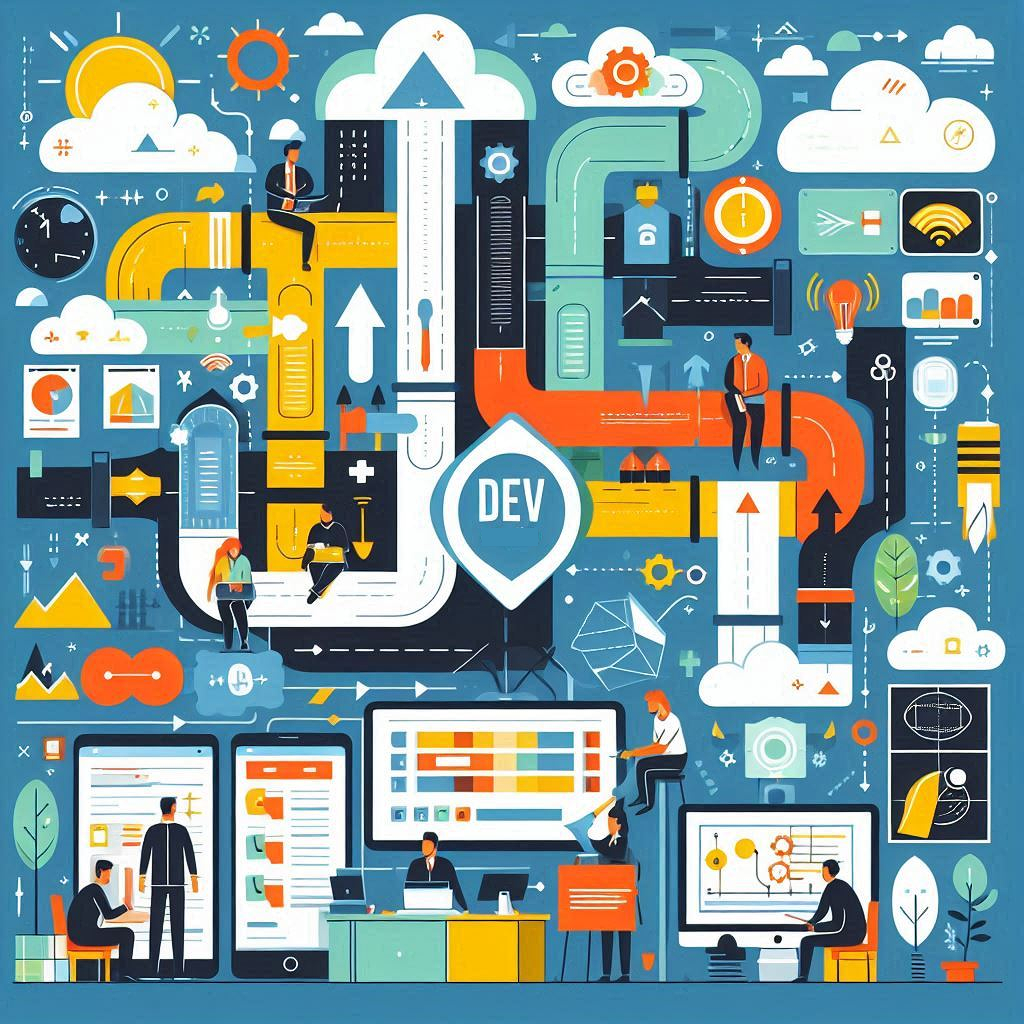Notifications

7 minutes, 57 seconds
-19 Views 0 Comments 0 Likes 0 Reviews

As organizations move toward agile practices and cloud-native systems, the demand for experienced DevOps engineers continues to rise. Whether you're preparing for your first DevOps role or looking to switch companies, understanding the most commonly asked DevOps engineer interview questions is essential.
This blog explores top technical and behavioral questions, along with practical examples, expert advice, and important facts to help you ace your next DevOps interview.
Companies now depend on DevOps services and solutions to build scalable, secure, and highly available applications. With the global DevOps market expected to reach $20 billion by 2025, hiring skilled engineers is a top priority for companies providing DevOps managed services and DevOps consulting services.
“DevOps is not just a job title. It’s a culture and a mindset.”
– Patrick Debois, DevOps Pioneer
Hiring managers want candidates who understand the full lifecycle—from planning and development to deployment, monitoring, and security.
This foundational question tests your understanding of the DevOps philosophy.
Sample Answer:
“DevOps is a set of practices that promotes collaboration between development and operations teams to automate infrastructure, ensure faster releases, and enhance reliability. It bridges the gap between code and production using tools and processes such as CI/CD, infrastructure as code, and continuous monitoring.”
Interviewers ask this to evaluate your grasp of the DevOps pipeline.
Example Explanation:
CI (Continuous Integration): Developers frequently merge code into a shared repository, where automated builds and tests run.
CD (Continuous Delivery): Code changes are automatically prepared for release, but manual approval is required to deploy.
CD (Continuous Deployment): Every code change that passes automated tests is deployed to production automatically.
Key Concepts:
Explain the use of IaC tools like Terraform, Ansible, or CloudFormation to define, provision, and manage infrastructure using code.
Pro Tip:
Share a real-world example. For instance, “At my previous role, we used Terraform to automate the provisioning of AWS EC2 instances across different environments. It improved consistency and reduced manual errors.”
Hiring managers are looking for hands-on experience.
Sample Workflow:
“I used GitHub for version control, Jenkins as the CI server, and Docker for containerizing applications. Every commit triggered a Jenkins pipeline that ran tests, built Docker images, and pushed them to AWS ECR. Deployment was handled through Kubernetes using Helm charts.”
Companies that offer DevOps as a service prioritize real-time monitoring to ensure uptime.
Mention Tools:
Prometheus, Grafana, ELK stack, Nagios, New Relic.
Example:
“We integrated Prometheus with Kubernetes to monitor pod health and resource usage. Alerts were configured in Grafana to notify the team during spikes.”
This question tests your problem-solving and collaboration skills.
Answer Tip: Use the STAR method (Situation, Task, Action, Result).
Example:
“In a production release, a misconfigured environment variable caused API failures. I identified the root cause using Kibana logs, rolled back the release, and worked with developers to fix the configuration. I then updated our CI pipeline to include a validation step to catch such errors.”
Security is a growing concern for companies that rely on DevOps consulting services.
Points to Cover:
Role-based access control (RBAC)
Secrets management (Vault, AWS Secrets Manager)
Code scanning tools (SonarQube, Snyk)
Compliance automation
According to Glassdoor, the average DevOps engineer salary in the US is around $120,000/year. This figure varies depending on location, experience, and whether you're working in-house or as part of a DevOps managed services provider.
Modern DevOps roles demand a strong command of:
|
Category |
Tools |
|
CI/CD |
Jenkins, GitLab CI, GitHub Actions |
|
Containers |
Docker, Podman |
|
Orchestration |
Kubernetes, ECS |
|
IaC |
Terraform, Ansible |
|
Cloud |
AWS, Azure, GCP |
|
Monitoring |
Prometheus, Grafana, ELK Stack |
Knowing how these tools fit together is key, especially when working with companies that offer DevOps services to clients across industries.
“The best DevOps engineers think like developers and operate like sysadmins. They bridge the gap between speed and stability.”
– Gene Kim, Co-author of The Phoenix Project
What’s your understanding of site reliability engineering (SRE)?
How do you handle blue-green deployments?
Describe a scalable architecture you’ve built.
What’s your process for handling secrets and configuration?
How do you collaborate with developers during incidents?
Practice real-world scenarios. Use home labs or GitHub projects to showcase your work.
Tailor your answers. Highlight specific experience related to the company’s tech stack.
Understand the business. Research whether they use in-house DevOps teams or rely on DevOps consulting services.
For career growth, it’s beneficial to explore projects with Cloudastra’s DevOps Services, where you can gain hands-on experience with cloud-native tools, CI/CD pipelines, and security-first DevOps practices.
Preparing for a DevOps engineer interview involves mastering both technical skills and real-world problem-solving. Whether you’re aiming for an in-house position or joining a team that offers DevOps as a service, being able to confidently answer these questions—and explain your thought process—will set you apart.
Stay current, keep practicing, and remember: the best engineers are those who automate themselves out of repetitive work and focus on delivering lasting impact.
Devops services DevOps as a Service DevOps consulting services devops engineer devops engineer interview questions devops managed services devops services and solutions

